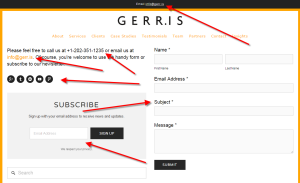Laurie Sullivan @lauriesullivan, (June 12, 2015)
 A research paper that recently resurfaced, penned by Saikat Guha, senior scientist at Raytheon BBN Technologies and a partner at Microsoft Research, investigates the possibility of running Web ads from local host computers. The research outlines his plan to reduce costs and improve privacy, as well as remove the need for Do Not Track options in browsers. Google search ads and CoDeeN clickstream were used to carry out the research, which seems more relevant today than when it was first written.
A research paper that recently resurfaced, penned by Saikat Guha, senior scientist at Raytheon BBN Technologies and a partner at Microsoft Research, investigates the possibility of running Web ads from local host computers. The research outlines his plan to reduce costs and improve privacy, as well as remove the need for Do Not Track options in browsers. Google search ads and CoDeeN clickstream were used to carry out the research, which seems more relevant today than when it was first written.
The paper — Serving Ads from localhost for Performance, Privacy, and Profit — uncovered by Martin Anderson at The Stack, suggests distributing the software package through adware-style software bundling, shopping discounts, or toolbars. The concept for the paper dates back to 2009. Another later version of the paper published in 2011 discusses Privad as a possible way to deliver Practical Privacy in Online Advertising.
Guha refers to the system as “Privad.” The system relies on mediation, an approved or trusted authority like the Electronic Frontier Foundation or the American Civil Liberties Union, to mediate what the publishers want to serve and what the viewer is willing to receive. The research team gathered two sets of data to guide the way the group designed the system: Google search ads, and CoDeeN clickstream.
The system aims to increase personalization and reduce privacy concerns and the cost of using personal data to quickly deliver targeted ads, per the paper. The local host or computer would determine the ads to serve.
Guha admits that one key challenge remains the ability to scale to the large numbers of ads, and preserve the advertising model that advertisers have come to expect; privacy, of course, another.
The paper also refers to the system similar to serving adware, and suggests a key would be to avoid similar pitfalls.
And the system must run in such a way that it doesn’t consume noticeable CPU, memory, or bandwidth.
Guha describes the paper as “a preliminary design and analysis of a private online advertising system” in which the results of initial tests encourage the researchers to continue the research.
Despite the initial success, Guha believes many details remain unresolved, along with high-level issues that the paper does not address. One of them is auction scalability and quality, and how it relates to advertiser privacy, another is detection mechanisms for click-fraud, and protecting user privacy after the click.
(225)
Report Post







